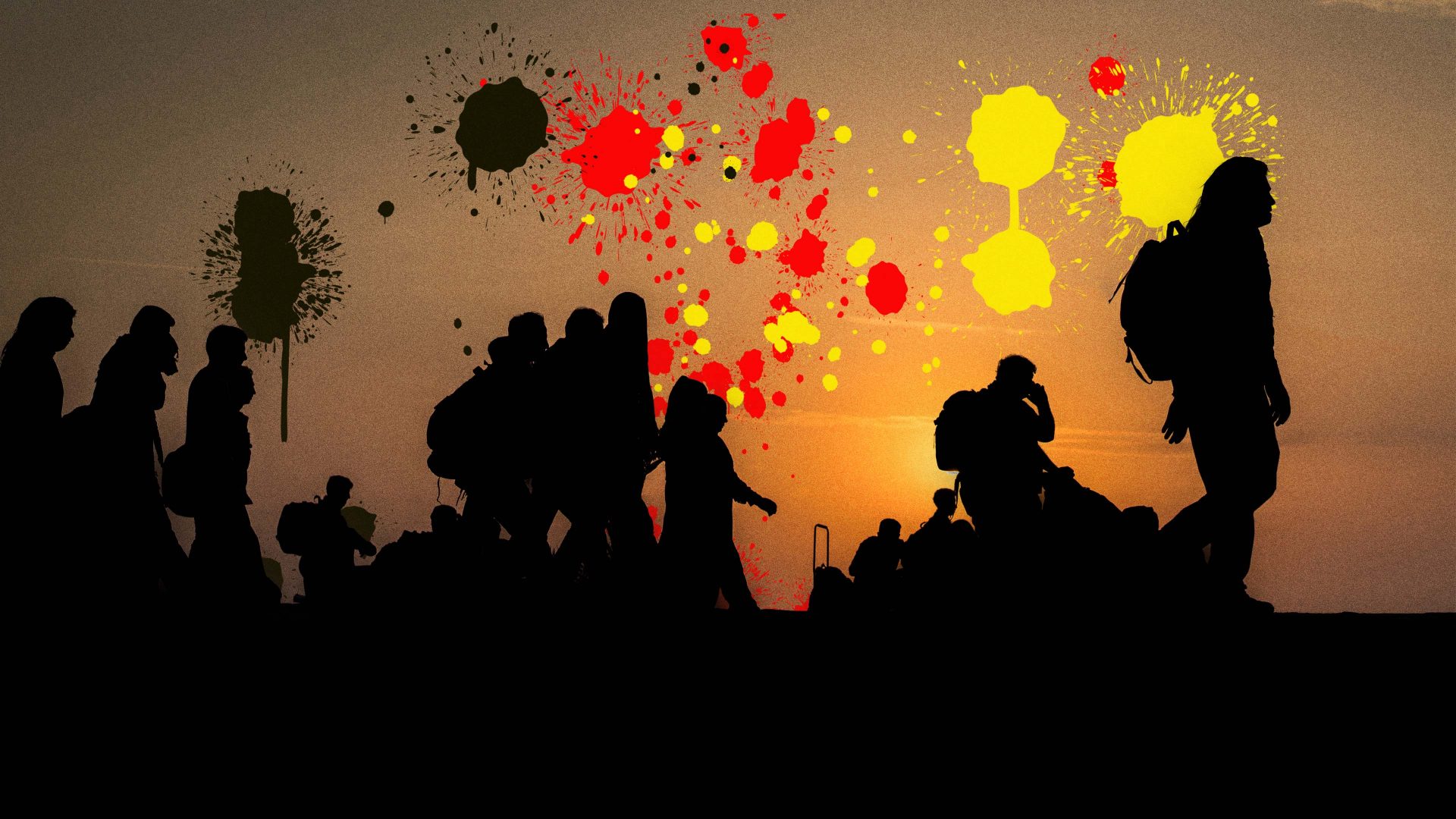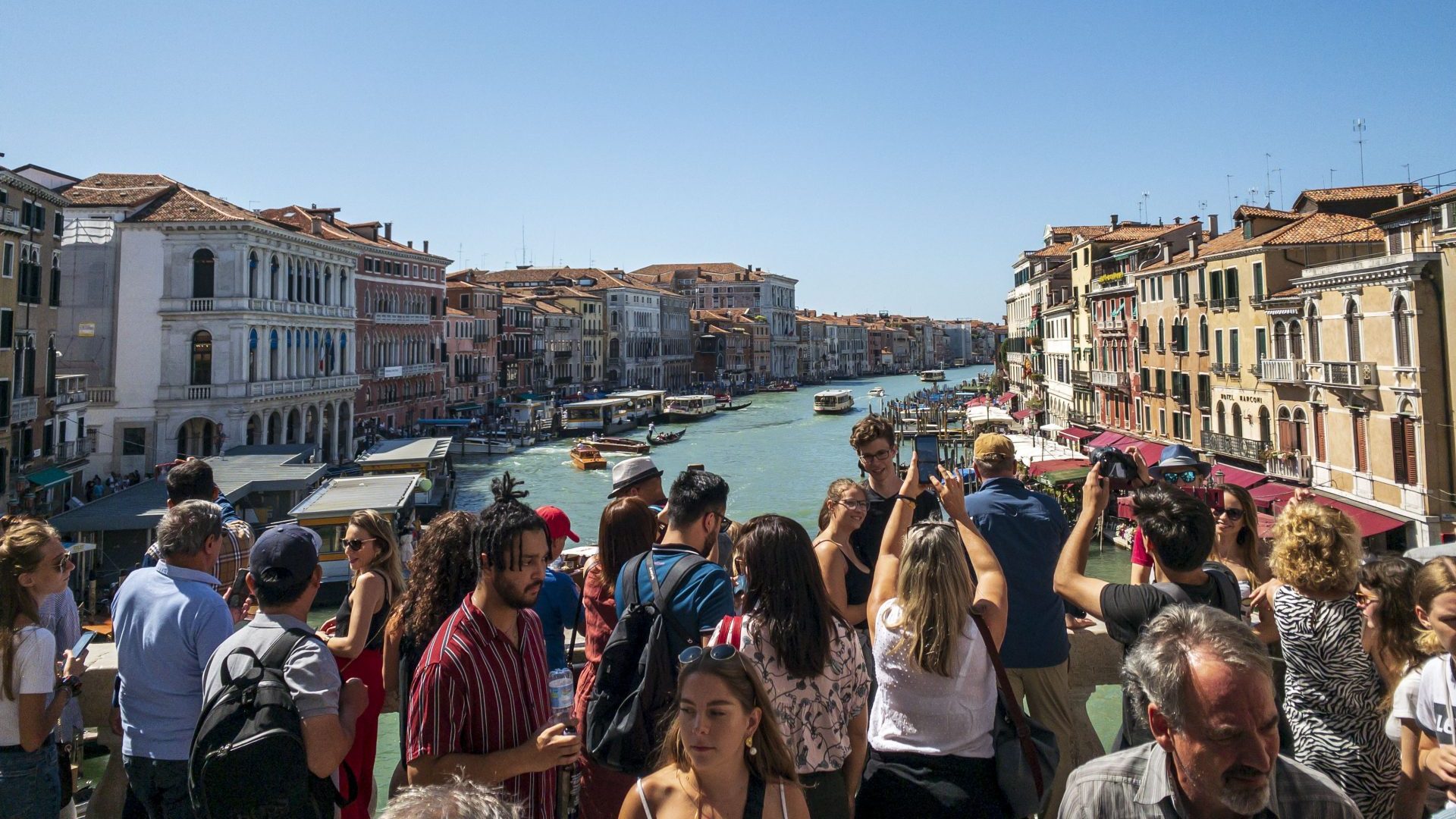Germany is in the midst of a new refugee crisis. In the first nine months of 2023, our authorities counted 200,000 new asylum applications, a 78% increase on 2022. In addition, more than a million Ukrainians have taken refuge here.
Just to be clear: you don’t see Germans carrying welcome signs at train stations any more, which doesn’t mean we have lost solidarity with people in need. Local authorities and volunteers work relentlessly to organise housing, care and schooling. But they are exhausted. And so is the system.
With the far-right AfD polling well above 20%, the public discourse has changed drastically. So former Bundespräsident Joachim Gauck took the lead. He doesn’t want to leave it to the extremists, who never solve problems because they live off them.
The highly respected 83-year-old, a Protestant clergyman and former chair of the Stasi records archive, has already stated in 2015: “Our heart is wide but our facilities are finite”. Last week, talking to public broadcaster ZDF, he called for a change of our asylum system to tackle “the apparent lack of control”. He added: “We need migration. We don’t need migration into our welfare state, however, without migration of skilled workers. And we need to discuss this in the middle of society, not at the fringes.” He called for new measures, “not just adjusting screws, as the EU is trying yet again, that have already shown to be unfit.”
A short trip into legal history: in 1948 the UN charter of human rights first established an individual right to asylum, but very few countries implemented it into national law. Germany was one that did. Written in 1949, article 16 of the Grundgesetz (German basic law) simply stated: “Politisch Verfolgte genießen Asylrecht” (Politically persecuted persons enjoy the right of asylum).
Another decisive aspect is seldom mentioned: the parents of our constitution assumed most claimants would come from the Soviet occupation zone. They could not foresee the cycle of migrants, refugees and people smugglers across the Mediterranean that we witness today.
In the 1990s, when numbers first rose significantly, amendments were made: if you come from a state that is considered “free of pursuit”, if you enter Germany via the EU or a so-called safe third country, in theory, you won’t be granted asylum or leave to remain. Yet asylum remains an individual basic right. So anyone who comes to Germany and says the word “asylum” is entitled to have their application checked in a lengthy procedure, and is also entitled to challenge the decision in the courts if political asylum (only granted in around 2% of the applications) or refugee status are denied.
In the meantime, applicants receive around €400 (£348) per month, plus accommodation and healthcare. Once denied, the majority are still not sent home, or back to the country they passed through, for practical or legal reasons. As a result, many of those who shouldn’t have come get to stay, blocking local capacities for those who are politically persecuted or refugees according to the Geneva convention.
A German court recently ruled that local authorities must cover the €17,000 surgery bill of a minor from Georgia. His parents had come to Germany as asylum seekers with their son, who suffers from an incurable disease. Asylum had been denied and the family was due to leave, but instead went to court to get medical treatment for the teenager – not life-saving but life-improving. Not treating him would have been a human rights violation, the court ruled.
I think it couldn’t have ruled any other way – but I also see why Germany is the most popular destination in Europe for anyone seeking to lead a better life. And why mayors and district administrators are so desperately pointing out that they cannot cope any longer.
German asylum procedures are as if you tried to take a picture, put a filter on it and upload it on social media – using a phone from the 1990s.
Obviously we cannot change the system alone – it is bound by international law, and in practice we will depend on treaties with Turkey, Tunisia, Libya, Morocco and so many other factors. But Denmark and Austria show that certain measures help to reduce the “pull factors”: non-cash benefits instead of money, speedy procedures, a centralised system. Numbers there have fallen; in the case of Denmark, this policy by a social democratic government even helped to crush the far-right populists. Let’s see how long it takes for our social democratic chancellor to connect the dots.




